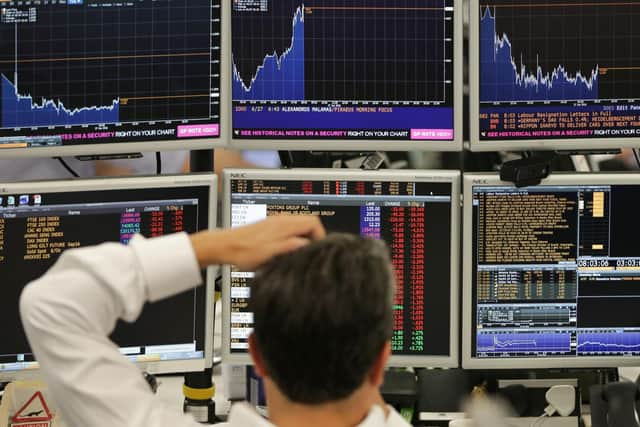Israel-Hamas conflict: Why markets fear repeat of 1970s oil price shock and fresh wave of inflation
Analysts said market traders were likely to take their lead from oil, which has already pushed higher on fears that a protracted or extended crisis will disrupt output from the Middle East. While a series of conflicts since the end of the Second World War have generally only had a minor or short-lived effect upon stock markets, the 1973 Yom Kippur war was seen as an exception, as it stoked an oil price surge and fuel shortages that in turn pushed up prices and forced dramatic interest rate increases on both sides of the Atlantic.
Russ Mould, investment director at financial platform AJ Bell, said: “There are so many more important things to consider than financial markets when a war breaks out, but central bankers, economists and investors could be forgiven for keeping an eye on the oil price in particular, while they hope for a speedy and peaceful resolution to the conflict between Israel and Hamas in the Gaza Strip.
Advertisement
Hide AdAdvertisement
Hide Ad“There have been numerous outbreaks of armed conflict since 1945 and few have had a lasting impact upon share prices, with 1973’s Yom Kippur War the major exception. That led to the 1973-74 oil price shock and in turn fuelled inflation and forced dramatic interest rate increases in the US and UK, so from the very narrow perspective of investment a repeat of that would be particularly unwelcome.”


He said the duration and extent of the fighting in Gaza would be important for many reasons, “humanitarian and financial”, noting that the 2014 Gaza conflict lasted several weeks but had limited impact on oil prices, the global economy or financial markets. “The fighting remained contained and no allies were dragged in to provide economic or military support of any scale,” Mould added. “In fact, the price of oil tumbled in 2014, to a low of barely $45 a barrel from a peak of more than $100, as Saudi Arabia ramped up production in an attempt to restrict the growth of US shale oil and gas output.”
He said all asset classes – bar gold – “took a pasting” between late 1973 and early 1975 as a result of the Yom Kippur war, while a second oil price shock occurred in 1979, following the Iranian Revolution and a reduction in supply of crude from Tehran.
“There are some potentially uncanny similarities between the 1970s and now, especially as government debt is soaring once more,” added Mould. “Central banks are in danger of finding themselves between the rock of inflation on one side (which commands higher interest rates to quash it) and that of lofty debt on the other (which needs lower rates to ensure the interest bill is even vaguely manageable).”
Matthew Ryan, head of market strategy at global financial services firm Ebury, said: “While the fallout has been largely contained thus far, it remains very early days and an escalation in the conflict threatens contagion throughout financial markets. We think that the biggest risk lies in commodities, as a wider war in the Middle East would jeopardise oil supply and could push up prices, particularly should major oil producers Saudi Arabia and Iran take up arms. This may present an additional upside risk to global inflation and could ensure that central bank interest rates stay higher, for longer.”
Brent crude prices were holding steady at around $87 a barrel in Wednesday trading after their previous spike following the weekend invasion of Israel.
Susannah Streeter, head of money and markets at investment platform Hargreaves Lansdown, noted: “Oil prices are settling, but a barrel of the benchmark Brent Crude is trading at just under $88 a barrel, up sharply from the price before the attacks in Israel. Although initial supplies aren’t affected, there are still worries about potential knock-on effects if there is contagion across the wider Middle East region.”
Comments
Want to join the conversation? Please or to comment on this article.